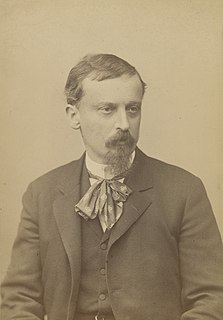A Quote by Abraham Verghese
When a man is a mystery to himself you can hardly call him mysterious.
Related Quotes
The great advantages of simulation and dissimulation are three. First to lay asleep opposition and to surprise. For where a man's intentions are published, it is an alarum to call up all that are against them. The second is to reserve a man's self a fair retreat: for if a man engage himself, by a manifest declaration, he must go through, or take a fall. The third is, the better to discover the mind of another. For to him that opens himself, men will hardly show themselves adverse; but will fair let him go on, and turn their freedom of speech to freedom of thought.
Jackson [Rathbone], who plays Jasper Cullen. He’s such a mysterious kid. I’ve been friends with him for a long time, and I still don’t get him, and I don’t think he gets himself! He’s really friendly, but there’s this mystery about him and he’s talented in so many ways. It’s too much talent for one person. He reminds me of a vampire.
The religious man, the mystic, tries to explore the mystery of death. In exploring the mystery of death, he inevitably comes to know what life is, what love is. Those are not his goals. His goal is to penetrate death, because there seems to be nothing more mysterious than death. Love has some mystery because of death, and life also has some mystery because of death.
It is a curious fact that no man likes to call himself a glutton, and yet each of us has in him a trace of gluttony, potential or actual. I cannot believe that there exists a single coherent human being who will not confess, at least to himself, that once or twice he has stuffed himself to bursting point on anything from quail financiere to flapjacks, for no other reason than the beastlike satisfaction of his belly.
Often nothing keeps the pupil on the move but his faith in his teacher, whose mastery is now beginning to dawn on him .... How far the pupil will go is not the concern of the teacher and master. Hardly has he shown him the right way when he must let him go on alone. There is only one thing more he can do to help him endure his loneliness: he turns him away from himself, from the Master, by exhorting him to go further than he himself has done, and to "climb on the shoulders of his teacher."



































